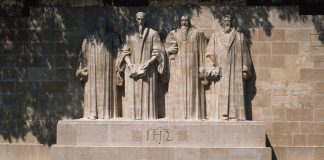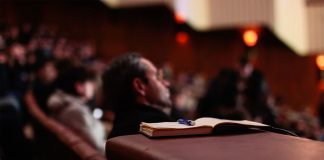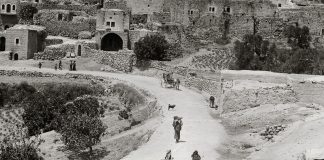Biblical revelation and ancient culture
How can one explain that laws attributed to revelation are found in the legislation of other ancient peoples? How can the similarities between biblical thought and ancient culture be explained? How is the biblical God compared to the gods of other peoples?
The mark of the beast | A controversial apocalyptic motif
In addition to its social and economic consequences, the COVID-19 pandemic also raised a religious question that has been raised every time there has been a major change in society: did the wearing of the mask, the anti-COVID vaccine or the green certificate have anything to do with the mark of the beast or the number 666 in the last book of the...
John Calvin
In The Legacy of John Calvin, David W. Hall divides leaders into two categories. Some predict the future, and others change it. Calvin, Hall said, is in the second category.
The source of motivation
Motivation is more than simply having the desire to wake up each morning with enthusiasm and a zest for life.
Why forgive? | The “justice” you don’t put to death won’t let you live
Following a poll, the Gallup Organization revealed good news and bad news. The good news is that 94% of the population believes that it is very important to forgive. The bad news is that 85% admit that, in their own power, they are not ready to forgive.
The Second Coming Files: A 2000-Year Inquiry | Part I: The fossilisation of the great Christian hope
Any religion’s popularity depends on the rewards it promises. While people are interested in the immediate benefits of this life, they are mostly interested in the future, the hope their religion brings, and how solid it is.
How does the calming prayer help us manage volcanic emotions?
“I live in a high and holy place, but also with the one who is contrite and lowly in spirit, to revive the spirit of the lowly and to revive the heart of the contrite" (Isaiah 57:15).
The crossless Cross
The mention of the city of Rio de Janeiro evokes images of the traditional carnival or the vast, exotic beaches such as Ipanema and Leblon. But most often we think of the huge monumental statue representing Christ the Redeemer (Cristo Redentor) with wide, open arms, looking down towards humanity from the top of Mount Corcovado (700m).
Conspiracy: from Lord of the Rings to the era of fake news
Towards the end of the Lord of the Rings trilogy, there is a final showdown between Frodo and Smeagol. Smeagol tries to regain possession of "My Precious", and when Frodo resists, Smeagol tries to strangle him. One scene in this part shows Frodo shocked that Smeagol has broken his promise and, though on the brink of death, sees fit to plead for honour:...
What do dreams mean?
Last night I had one of those dreams. You know, the kind you wake up from and remember. Basically, there were a lot of things that were unusual, but people and places that were familiar—common themes for many who remember their dream content.
“Do not keep on babbling” | Public prayer and its challenges
The way we pray in public reveals what our secret prayers are truly like. Beyond mere words, it is our attitude and motivation that give meaning and substance to prayer.
Loving till we see an end to sad stories
We carry sad stories with us, and the meaning of these stories often eludes us. What if we discovered that these stories provide unique opportunities to change lives? Cori Salchert discovered, through family tragedy, the resolve and desire to take care of children with terminal illnesses.
The stories that restore our future
Among the words of Jesus, I was first fascinated by His surprising and enigmatic counter-questions, which generated real clashes among his tempters. In the face of the questions that were supposed to leave Him speechless, He always had a more comprehensive vision, from the perspective of which the traps were reduced to ridiculous, absurd obstacles.
COVID-19: Which end is The End?
As the crisis caused by the new coronavirus deepened and spread, it was to be expected that the phenomenon would be framed in apocalyptic terms. It is something that tends to occur in such contexts.


























